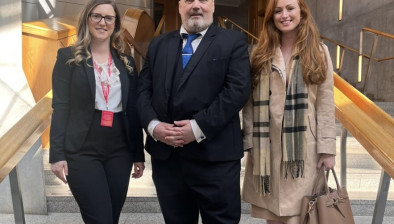Call for reduction in 8 per cent judicial rate of interest
 Govan Law Centre (GLC) has written to the Minister for Business, Innovation and Energy in Scotland, Mr Paul Wheelhouse MSP, expressing concern over many creditors gaining massive financial windfalls at the expense of financially vulnerable people in Scotland who are finding it tough to make ends meet.
Govan Law Centre (GLC) has written to the Minister for Business, Innovation and Energy in Scotland, Mr Paul Wheelhouse MSP, expressing concern over many creditors gaining massive financial windfalls at the expense of financially vulnerable people in Scotland who are finding it tough to make ends meet.
The financial windfall for creditors occurs because of a lacuna in the law.
Scotland’s judicial rate of interest has remained at 8 per cent per annum, at a time when inflation has been at a historic low for many years; as has the Bank of England’s base rate, which remains at 0.5 per cent.
GLC commented on a client who had entered into a protected trust deed, just over a decade, ago with a mix of unsecured loans, credit cards and overdrafts in the sum of £27,321. The centre’s client owns a house in Glasgow South West with equity, has four dependent children and his wife has recently died from cancer. The family now face repossession.
The client has made his monthly payments over the years without fail to the trustee, and was advised by the insolvency firm to enter into this arrangement with a view to re-mortgaging at a later date. However, this was prior to the financial crisis. Just over a decade later and the amount owed has now soared to a staggering £52,507.
A further additional £14,736 is owed for the fees of the trustees and their solicitors.
GLC’s Principal Solicitor, Mike Dailly said: “Any member of the public investing savings in an ISA or savings vehicle would expect to gain interest of 0.5% to 1%. Yet, creditors are entitled to 8% interest on debts which are subject to a protected trust deed or sequestration. We believe this is an unjust windfall, and a lacuna in the law which could easily be rectified by the Scottish Government reducing the judicial rate of interest on debts to a percentage more aligned to the base interest rate by way of a Scottish statutory instrument”.
“We would be happy to meet with the Minister for Business, Innovation and Energy and/or his officials to provide further examples, and discuss how this issue could be best addressed to minimise the need for avoidable repossessions, and striking a fair and equitable balance between the interests of creditors and debtors in Scotland”.









